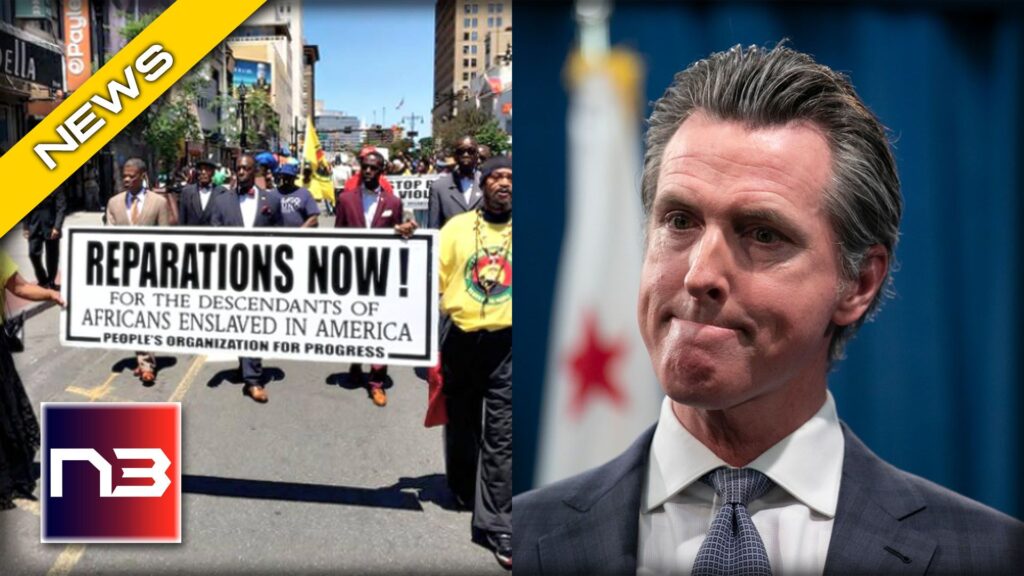California Governor Gavin Newsom has declined to endorse the recommendation of his state’s Reparations Task Force for cash payouts of up to $1.2 million for black residents. The governor praised the task force for its work in advancing systemic change, but stopped short of supporting the idea of payouts. The task force’s recommendations, which are set to be submitted later this summer, suggest payments based on residents’ duration of time living in California, and their exposure to discriminatory policies. The total reparations bill could reach an amount more than double the state’s annual budget, which has left Americans absolutely stunned.
This week, Newsom expressed his support for the work of the state’s Reparations Task Force which has been tasked with examining the issue of reparations for past injustices, however, he stopped short of endorsing its call for payments of up to $1.2 million per person. Governor Newsom, who appointed five of the nine members of the task force, emphasized that the issue of reparations was complicated and required a much more nuanced approach than simply providing financial compensation.
In a statement to FOX News Digital and other news outlets, Newsom said, “The Reparations Task Force’s independent findings and recommendations are a milestone in our bipartisan effort to advance justice and promote healing. This has been an important process, and we should continue to work as a nation to reconcile our original sin of slavery and understand how that history has shaped our country.”
Newsom added, “Dealing with that legacy is about much more than cash payments.”
The recommendations of the task force, which are due to be published later this summer, are based on a range of factors, including how long residents have lived in California, and the impact of discriminatory policies on their lives. Under the proposals, some black residents who were impacted by discriminatory practices such as bank red-lining, could receive up to $148,099 in payments. Similarly, black residents who were subjected to over-policing and mass incarceration in the state could receive an additional $2,352 per year for the years that they lived there. In total, some black residents could find themselves in receipt of payments totalling up to $1.2 million.
These proposals come with a hefty price tag, however, with the cost of the programme estimated at around $800 billion – more than double the state’s annual budget. The proposed reparations would be funded through a combination of public funds and donations from wealthy individuals and corporations.
The issue of reparations has long been a controversial one in the United States, particularly among conservatives who argue that it is unfair to compensate people now for wrongs perpetrated in the past. Critics also point out that many of those who would be entitled to reparations under the California proposals have never directly suffered the injustices for which they are being compensated.
Proponents of reparations argue that it is a necessary step in addressing the historic wrongs inflicted on minority communities in the United States and that it is long overdue. They point out that the legacies of slavery and other forms of discrimination are still felt today and that it is the responsibility of society as a whole to redress these injustices.
Ultimately, the decision on whether to proceed with the reparations program will rest with the California State Legislature. It remains to be seen whether they will decide to adopt the task force’s recommendations in their current form, or whether they will seek to amend them in some way.
While the issue of racism should indeed be addressed, the recommendation of cash payouts for reparations is not a viable solution. The cost of such a program, as estimated at $800 billion, would put an enormous strain on California’s annual budget and potentially lead to even greater tax increases for its citizens. Furthermore, the criteria for determining who is eligible for payouts based on what discriminatory policies affected them in the past seems to be subjective and difficult to prove. Cash payouts for reparations would not erase the past but instead create further division and resentment among different groups of people.



